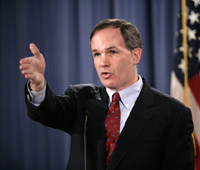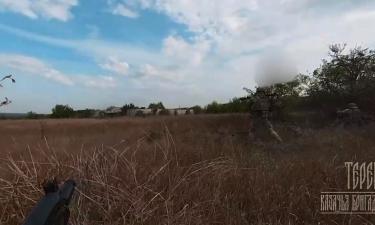Senate committee to improve press freedom

A bill that would shield reporters from being forced to reveal their sources is being considered by the Senate Judiciary Committee.
The Bush administration opposes the bill on grounds it would make it harder to trace the source of leaks.
So does U.S. Attorney Patrick Fitzgerald, who subpoenaed reporters to testify against White House aide I. Lewis "Scooter" Libby in a case that grew out of Fitzgerald's CIA leak probe. Libby was convicted of obstruction, perjury and lying to the FBI; his sentence was commuted by President George W. Bush.
"The proposed shield law poses real hazards to national security and law enforcement," Fitzgerald writes in an opinion piece Thursday in The Washington Post.
Leaks of classified information harm national security, Fitzgerald said, and a federal shield law "would have the unintended but profound effect of handcuffing investigations of such leaks."
In a companion piece in the Post, former Bush administration solicitor general Theodore B. Olson argues for the proposed federal law, saying state shield laws have worked well.
"Reporters do not expect to be above the law," writes Olson, who represented some reporters in the CIA leak case. "But they should receive some protection so they can perform their public service in ensuring the free flow of information and exposing improper conduct without risking jail sentences."
The measure to be considered by the committee Thursday, creating the first federal shield law for reporters, is a bipartisan compromise. The panel could not finish considering all amendments a week earlier.
In an objection echoed by some Republican senators, the Justice Department and Bush's intelligence officials say that leaked reports of intelligence activities have been a valuable source of information to the nation's adversaries. Republican Sen. Jon Kyl touted Justice Department statistics that show that 19 subpoenas have been issued for reporters' source-related material since 1992, and only four have been approved since 2001.
But supporters point out that the bill includes exemptions for cases in which investigators are tracking acts of terrorism in the U.S. and other countries. An amendment by Republican Sen. Sam Brownback would keep accused spies, agents of foreign countries and terrorists from claiming the same protections extended to journalists.
The bill is supported by 50 news organizations, including The Associated Press.
The House Judiciary Committee passed its own bill in August.
Subscribe to Pravda.Ru Telegram channel, Facebook, RSS!




